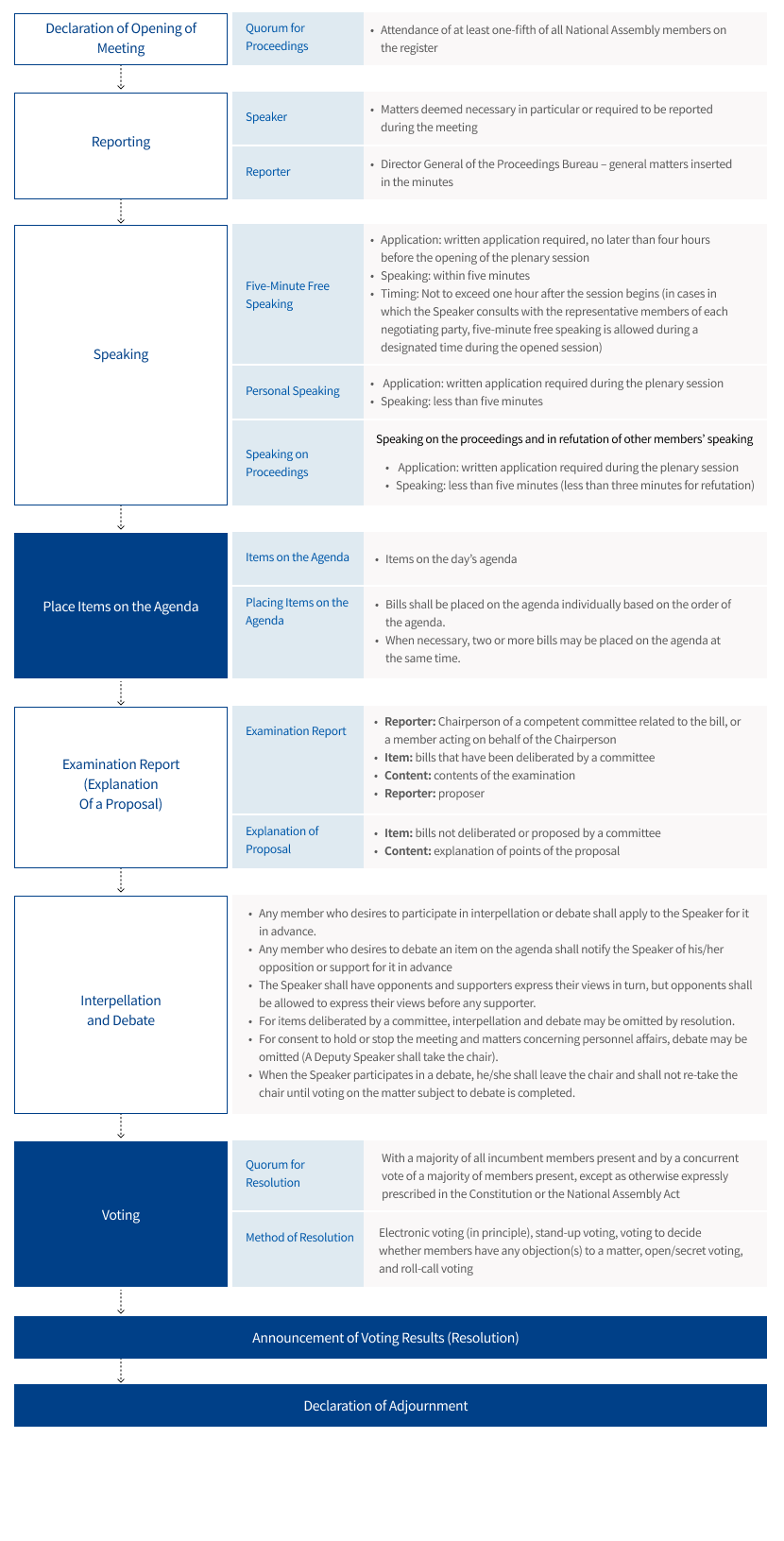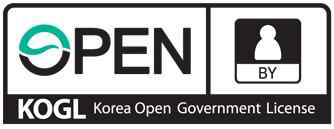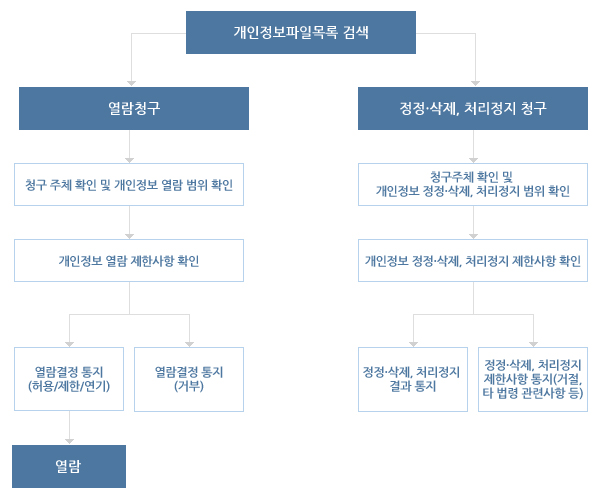| Quorum for a General Resolution |
With attendance of a majority of members on the register and with the concurring votes of a majority of members present |
| Quorum for a Special Resolution |
With concurring votes of at least two-thirds of members on the register |
- Expulsion of a member
- Resolution on a motion to impeach the President
- Resolution on a motion to revise the Constitution
- Decision on disqualification of a member
|
| With concurring votes of at least three-fifths of members on the register |
- Resolution on a motion to designate an agenda for expeditious processing
- Agreement on termination of a filibuster
|
| With concurring votes of a majority of members on the register |
- Resolution on a recommendation to dismiss the Prime Minister or a member of the State Council
- Resolution on a motion to impeach the Prime Minister
- Call for lifting of martial law
- Election of the Speaker or the Deputy Speakers of the National Assembly
|
- With attendance of a majority of members on the register and with concurring votes of at least two-thirds of members present
|
- Resolution on a legislative bill vetoed by the President
- Resolution on a motion for reversal of an already passed bill
|
- With attendance of a majority of members on the register and with a majority of votes among members present
|
- A final vote to elect the Speaker or the Deputy Speakers of the National Assembly
- Election of the Speaker pro tempore
- Election of the Chairman of a Standing Committee
|



